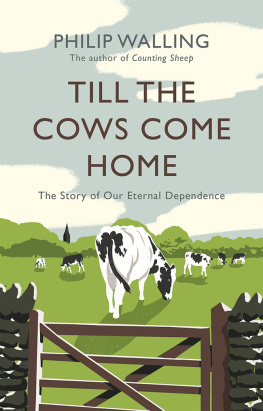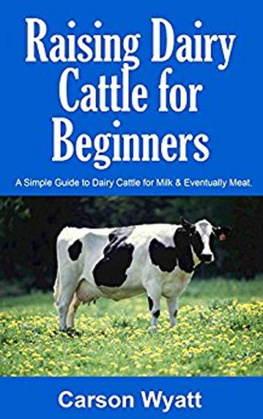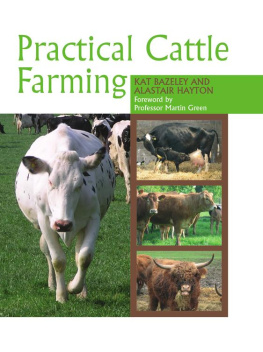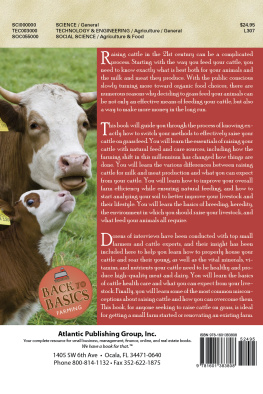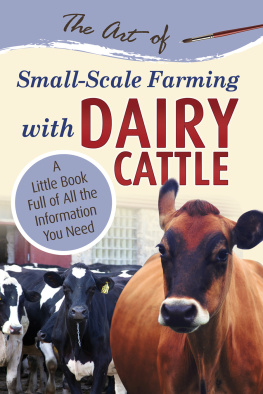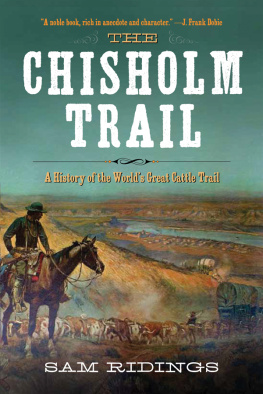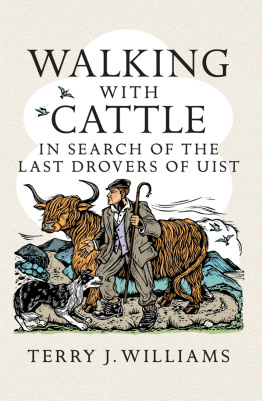Also by Philip Walling
Counting Sheep

First published in Great Britain in 2018 by Atlantic Books,
an imprint of Atlantic Books Ltd.
Copyright Philip Walling, 2018
The moral right of Philip Walling to be identified as the author of this work has been asserted by him in accordance with the Copyright, Designs and Patents Act of 1988.
All rights reserved. No part of this publication may be reproduced, stored in a retrieval system, or transmitted in any form or by any means, electronic, mechanical, photocopying, recording, or otherwise, without the prior permission of both the copyright owner and the above publisher of this book.
1 2 3 4 5 6 7 8 9
A CIP catalogue record for this book is available from the British Library.
Hardback ISBN: 978-1-78649-306-4
E-book ISBN: 978-1-78649-308-8
Paperback ISBN: 978-1-78649-307-1
The illustration credits on p.363 constitute an extension of this copyright page.
Fetching Cows by Norman MacCaig, copyright the Estate of Norman MacCaig, reproduced with permission of the Licensor through PLSclear.
Printed in Great Britain
Atlantic Books
An Imprint of Atlantic Books Ltd
Ormond House
2627 Boswell Street
London
WC1N 3JZ
www.atlantic-books.co.uk
For Libby, who will understand better than most
what this books about.
Contents
List of Illustrations
ACKNOWLEDGEMENTS
As with the writing of any book, various influences and events, over many decades, have contributed to its final form, and many of them I have either forgotten or have not been conscious of their effect. It is easier to remember the people who have directly helped me and I must record with thanks the great kindness shown by all those I visited and spoke to. If I have unintentionally forgotten anyone, I beg their forgiveness.
William and Richard Dart at Molland Botreaux and the Shinner family at Buckfastleigh in Devon; Jonathan Crump and Charles Martell in Gloucestershire; the Baynes family at Marleycote Walls and Hugh Richardson at Wheelbirks in Hexhamshire; Mark Gray at Broom House Farm in County Durham; and Don Antonio Miura at Lora del Ro in Andalusia. I owe particular thanks to Simon Gray for his tremendous encouragement and friendship. I must also thank Charlie Bennett, in Northumberland, whose little herd of wild Dexters reminded me why my cousin advised me not to have anything to do with them.
Until I went to America and visited the natives in their natural habitat, I had no idea how generous and welcoming they are. Its a big country and it produces big-hearted people. I had never met any of them before I arrived in the US, but everyone treated me as if we had been friends all our lives. John and Rebecca Wampler spent two days showing me round the stockyards at Fort Worth, their ranch and their herd of Longhorn cattle. Rebecca was so generous with her time and enthusiasm, it is impossible to repay the debt; I can do no more than acknowledge how much I owe her. Russell Fairchild of the Longhorn Cattle Association, Gary and Kendra Rhodes in West, Texas, who made me feel so welcome, Kit Pharo and Tammy Fleischacker of the Pharo Cattle Company, with whom I spent a memorable summer day on the wide high plains of Colorado; the Yegerlehner family in Indiana, who impressed me with their quiet determination to farm against the American grain.
I regret having had no space to include an inspiring visit to Preston Correll in Kentucky, one of the most learned and intelligent men I have ever met; and a day spent with the wonderful Joel Salatin and his family and interns, in Virginia, whose often lonely evangelism for honest family farming has done much to show how the ravaged soils of North America can be healed.
My editor at Atlantic Books, James Nightingale, has been patience itself and I am grateful for his calm courtesy and wise advice. Jane Selley, my copy-editor, has done a sterling job, correcting many egregious mistakes; no doubt some will still remain, for which I take full responsibility.
Philip Walling
Scots Gap
April 2018
Preface
W E ARE THE inheritors of a legacy of cattle breeding that stretches back into the ancient world. Without oxen to pull our ploughs and haul our carts, settled farming would have been impossible; without their manure, our soils would have been the poorer; without milk, our diet would have been deficient; and without their hides, we would have had no leather, or the myriad other things we take for granted. It is impossible to overstate the services rendered by the ox to the human race.
But humanitys dependence on cattle is not merely a thing of history. In many ways we are more reliant on them today than we ever were, although the form of our dependence has changed. As Western (particularly American) ways of eating have spread out into most corners of the globe, the demand for beef and milk has grown prodigiously. From modest beginnings in California in 1940, McDonalds now has 35,000 burger outlets worldwide. This American cultural and culinary influence has been achieved on the backs of the millions of cattle slaughtered annually to satisfy the apparently inexorable demand for minced beef in a bread bun and, of course, the cows milk that goes to make the processed cheese they put with it.
As this demand for what cattle produce increases everywhere, and eating steak is seen as a badge of affluence, so the numbers of cattle worldwide must only increase in step, from the current 1,000 million worldwide. India has 300 million, with 225 million in Brazil, 100 million in China, 90 million in the US, 90 million in the EU and even 18 million in Russia, not to mention the 10 million in the UK.
Most people in the urban West have little idea about cows. They cannot identify the breed, let alone whether it is a beef or dairy type. For example, they do not know that a cow has almost the same gestation period as a human female, or that some dairy cows can give 30 times their body weight in milk in a ten-month period. Or that a bullock of a specialized beef breed can grow to weigh a ton entirely from eating grass. This book is an attempt to give a flavour of what our cattle do for us. It does not purport to be more than impressionistic; more is omitted than included. It is certainly not an encyclopedia. There are plenty of those. It is simply an account of one mans recollection of his all-too-brief involvement with cattle.
I was 13 when my grandfather died and left me 50 acres of land, but I couldnt get my hands on it until I was 21. I wonder whether knowing that it was coming affected my attitude to schoolwork, and had something to do with my getting poor grades in my A levels. Who knows? Anyway, after messing about in a spoiled adolescent kind of way, and needing an occupation and an income, I bought an old Grey Fergie tractor and a tipping trailer for a few hundred pounds and started to do all kinds of jobs for anybody who would pay me. I accepted almost any work that was offered, but I found I had a particular talent for building dry-stone walls and got quite a bit of work. A few times I bit off more than I could chew and was nearly defeated by a couple of bigger jobs, but I reluctantly came to accept my limitations.
One memorable job was building a wall around part of the graveyard of the Methodist chapel in the middle of Workington, just across the road from the bus station. This took me quite a long time. Every day I travelled the 12 miles there and 12 miles back on my old tractor (no cabs in those days), with the trailer loaded with sand and hundredweight bags of cement. I dug the foundations with a pick and shovel. In places my excavations were close to some gravestones, and one day I unearthed what I thought might be a human tibia I remembered what they looked like from biology lessons. It was a bit creepy digging out half a decayed leg bone with a round joint on one end and a jagged break on the other. I wrapped it in a paper sack and stowed it under the tractor seat, intending to show it to the architect who was paying me to build the wall. Somewhere between Workington and home, however, it must have fallen off, because it was missing when I got back. I kept a careful lookout next morning on the road back to Workington, but I never saw it again. Ive often wondered what happened to it.

